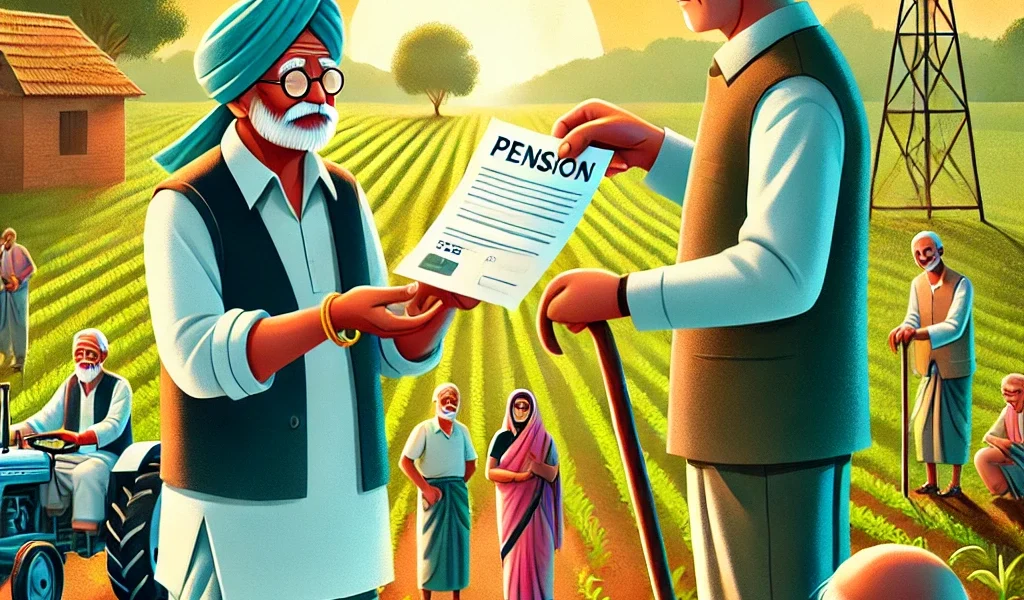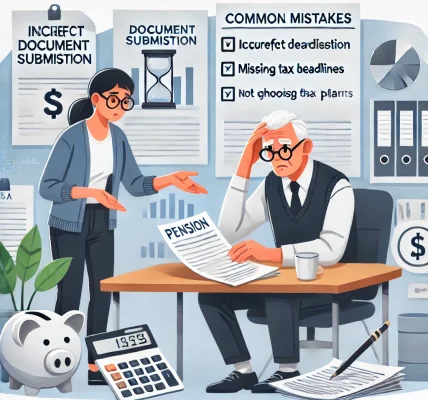Introduction
Farmers are the backbone of India’s economy, contributing significantly to food security and rural development. Despite their crucial role, many farmers face financial instability, especially in their old age when they are unable to work. Recognizing this issue, the Indian government has introduced various pension schemes specifically designed to support farmers and provide them with financial security post-retirement.
In this article, we will explore key government pension schemes for farmers, their benefits, eligibility criteria, and how they contribute to ensuring economic stability in rural India.
Why Do Farmers Need Pension Schemes?
Farmers often work without a structured retirement plan, leaving them vulnerable to financial difficulties in their later years. Some key reasons why pension schemes are essential for farmers include:
- Lack of Regular Income: Most farmers rely on seasonal earnings and do not have fixed salaries or pensions like salaried employees.
- Unpredictable Agricultural Output: Factors like weather conditions, market fluctuations, and crop failures can impact income stability.
- Rising Healthcare Costs: As farmers age, medical expenses become a major concern.
- Reducing Dependency on Family: Pension schemes ensure financial independence for elderly farmers.
- Encouraging Savings Culture: A structured pension plan promotes long-term financial planning.
Best Government Pension Schemes for Farmers
The Indian government has introduced several pension schemes specifically aimed at improving the financial well-being of farmers. Below are the most notable ones:
1. Pradhan Mantri Kisan Maandhan Yojana (PM-KMY)
- Best for: Small and marginal farmers
- Eligibility:
- Farmers aged between 18 to 40 years
- Possess up to 2 hectares of cultivable land
- Should not be a taxpayer or covered under other government pension schemes
- Key Benefits:
- Monthly pension of ₹3,000 after the age of 60
- Farmers contribute between ₹55 to ₹200 per month, matched equally by the government
- Provides a safety net for retired farmers
- Why Choose It?
- Ensures steady post-retirement income
- Government-supported with low premium contributions
2. Atal Pension Yojana (APY)
- Best for: Farmers without structured pension plans
- Eligibility:
- Open to all citizens aged 18 to 40
- A bank account is required
- The subscriber should not be a taxpayer
- Key Benefits:
- Pension amount ranging from ₹1,000 to ₹5,000 per month post-retirement
- Government co-contribution for eligible subscribers
- Why Choose It?
- Low contribution requirement
- Guaranteed pension benefits for farmers and their spouses
3. Indira Gandhi National Old Age Pension Scheme (IGNOAPS)
- Best for: Senior citizen farmers from economically weaker sections
- Eligibility:
- Individuals aged 60 and above
- Must belong to the Below Poverty Line (BPL) category
- Key Benefits:
- Monthly pension of ₹200 for those aged 60-79 and ₹500 for 80+ individuals
- Additional pension benefits in some states
- Why Choose It?
- Ideal for senior farmers who have no financial backup
- Fully funded by the government
4. State-Specific Farmer Pension Schemes
Many state governments also run special pension schemes for farmers. Some of these include:
- Rythu Bandhu Scheme (Telangana) – Direct financial aid to farmers
- Krushak Assistance for Livelihood and Income Augmentation (KALIA) (Odisha) – Pension for farmers over 60 years
- Mukhyamantri Kisan Evam Sarvhit Bima Yojana (Uttar Pradesh) – Pension and insurance benefits
Farmers should check their respective state’s welfare programs for additional financial security.
How to Apply for These Pension Schemes?
To avail the benefits of these pension schemes, farmers need to follow these steps:
- Check Eligibility: Verify that they meet the age and income requirements.
- Gather Necessary Documents: Required documents usually include:
- Aadhaar card
- Bank account details
- Land ownership proof (if applicable)
- Income certificate
- Visit the Nearest CSC Center or Online Portal:
- Farmers can apply through Common Service Centers (CSCs) or official government websites.
- Fill Out the Application Form: Complete the required details and submit supporting documents.
- Start Contributing: Once approved, regular contributions (if required) should be made for continued benefits.
Additional Benefits for Farmers
Apart from pension schemes, the government provides other financial security measures for farmers:
- PM-KISAN Scheme: Direct benefit transfer of ₹6,000 per year to small and marginal farmers.
- Fasal Bima Yojana (Crop Insurance): Protection against crop losses due to natural disasters.
- Kisan Credit Card (KCC): Low-interest loans for agricultural expenses.
- Subsidized Healthcare: Ayushman Bharat Scheme for free medical treatment.
By combining pension schemes with these initiatives, farmers can secure a well-rounded financial safety net.
Common Challenges Faced by Farmers in Availing Pensions
Despite the availability of pension schemes, many farmers face difficulties in accessing them:
- Lack of Awareness: Many farmers are unaware of government pension schemes.
- Complex Documentation Process: Bureaucratic hurdles make enrollment difficult.
- Delayed Pension Payments: Irregular disbursement of pension funds affects financial security.
- Limited Digital Literacy: Many farmers struggle with online applications and digital banking.
To address these challenges, the government should focus on simplified registration, awareness campaigns, and improved fund disbursement processes.
Conclusion
Pension schemes for farmers are a crucial step towards ensuring financial stability and social security in rural India. Schemes like PM-KMY, APY, and IGNOAPS provide much-needed financial support, helping farmers lead a secure and dignified life post-retirement.
By enrolling in these pension schemes and leveraging additional government benefits, farmers can protect themselves from financial hardships and enjoy a stable future. Spreading awareness and improving access to these schemes will further strengthen rural India’s economic resilience.



